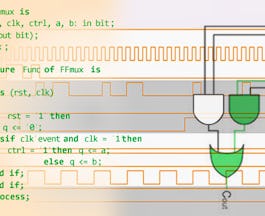Filter by
The language used throughout the course, in both instruction and assessments.
484 results for "logic"
 Status: Free
Status: FreeStarweaver
 Status: Free
Status: FreeUniversitat Autònoma de Barcelona
Skills you'll gain: Computer Architecture, Hardware Design, Problem Solving, Algorithms, Systems Design

University of California, Irvine
 Status: Free
Status: FreeStanford University
Skills you'll gain: Algorithms, Cryptography, Mathematics, Security Engineering, Theoretical Computer Science, Probability & Statistics, Critical Thinking, Mathematical Theory & Analysis, Computer Security Models, System Security

Lund University
Skills you'll gain: Human Computer Interaction, Human Learning, Applied Machine Learning, Decision Making, Machine Learning Algorithms, Business Intelligence, Critical Thinking, Leadership and Management, Regulations and Compliance

Skills you'll gain: React (web framework), SQL, Application Development, Data Management
 Status: Free
Status: FreeYale University
Skills you'll gain: Critical Thinking, Storytelling
 Status: Free
Status: FreeUniversitat Autònoma de Barcelona
 Status: Free
Status: FreeCoursera Project Network
Skills you'll gain: Computer Programming, Data Analysis, Data Science, Machine Learning, Python Programming

Dartmouth College

Dartmouth College
 Status: Free
Status: FreeUniversity of Pennsylvania
Skills you'll gain: Entrepreneurship, Marketing, Strategy, Media Strategy & Planning, Entrepreneurial Finance, Planning, Strategy and Operations, Advertising
In summary, here are 10 of our most popular logic courses
- Deception As a Defense: Starweaver
- Digital Systems: From Logic Gates to Processors: Universitat Autònoma de Barcelona
- Tricky English Grammar: University of California, Irvine
- Cryptography I: Stanford University
- AI & Law : Lund University
- Working with Data: Meta
- Narrative Economics: Yale University
- Sistemas Digitales: De las puertas lógicas al procesador: Universitat Autònoma de Barcelona
- Data Science Challenge: Coursera Project Network
- Question Reality: Matter: Dartmouth College










